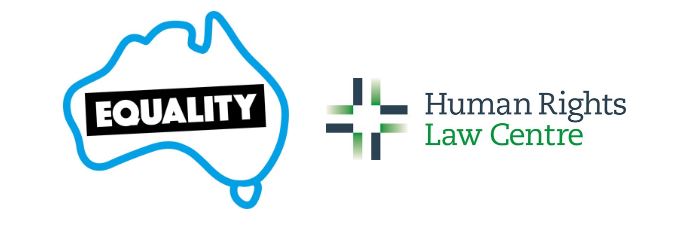UN Human Rights Council must commit to protecting the rights of LGBTQ people
The Human Rights Law Centre and Equality Australia have joined over 1300 non-governmental organisations from 174 countries in calling for the renewal of the UN role focusing on the rights of LGBTQ people around the world.
This week, the countries that sit on the Human Rights Council will vote on whether the role of the independent expert on protection against violence and discrimination based on sexual orientation and gender identity will continue for another three years.
Lee Carnie, Director of Legal Advocacy at Equality Australia, said the independent expert played a vital part in protecting the health and wellbeing of LGBTQ people.
“The work of the expert on sexual orientation and gender identity is far from finished. LGBTQ people around the world continue to experience grave and widespread human rights violations. Here in Australia, religious schools can still expel a student for being trans or lesbian, fire a maths teacher for marrying his husband, or refuse to hire a receptionist who is bisexual or queer,” said Carnie.
The independent expert works constructively with human rights defenders, governments and community and faith leaders, to highlight and address the systemic discrimination LGBTQ people experience. Over the last three years, the current UN expert, Mr Victor Madrigal-Borloz, developed a human rights framework on how governments could remove barriers for trans and gender diverse people to update their identity documents.
“The independent expert’s guidance on how to remove unnecessary and discriminatory barriers to trans and gender diverse people legally affirming their gender is a useful tool to persuade state and territory governments to reform outdated birth certificate laws in line with Australia’s international human rights obligations,” said Carnie.
“Being forced to use ID that doesn’t match your identity creates daily problems when applying for a job, going to Centrelink or enrolling to study. Trans and gender diverse people already face unacceptable levels of mistreatment and abuse, and denying access to legal gender recognition makes these problems worse. LGBTQ people across the globe continue to suffer from violence, hate speech, abuse, mistreatment and discrimination. Now is not the time to wind back protection.”
In a separate statement to the Human Rights Council, delivered by University of Sydney senior health researcher Cristyn Davies, Australian non-governmental organisations called for the renewal of the UN expert’s role and highlighted some of the key challenges for Australian governments.
Edwina MacDonald, a Legal Director of the Human Rights Law Centre, commended the Australian Government, who sits on the Human Rights Council, for supporting renewal of the expert’s role.
“Renewing the role of the expert sends a strong message that no one should be treated unfairly or subjected to harm and abuse because of who they are or who they love. It makes clear that we must continue to shed light on these violations and ensure LGBTQ people can live a life of dignity,” said MacDonald.
“The Australian Government’s advocacy in support of the independent expert is a welcome contribution to ensuring the continuation of the expert’s crucial work combatting violence and discrimination. The Government must also improve rights protections back home, including by committing to protect LGBTQ students and teachers from discrimination in all schools.”
Read the global statement from over 1300 non-governmental organisations here.
Read the joint Australian non-governmental organisation statement delivered by Cristyn Davies here. You can also watch it here. Davies made the statement on behalf of the Human Rights Council of Australia, the Human Rights Law Centre, Equality Australia and Twenty10. Davies is a senior health researcher at the University of Sydney and a board director at Twenty10.
Media contacts:
Michelle Bennett, Communications Director, Human Rights Law Centre, 0419 100 519

